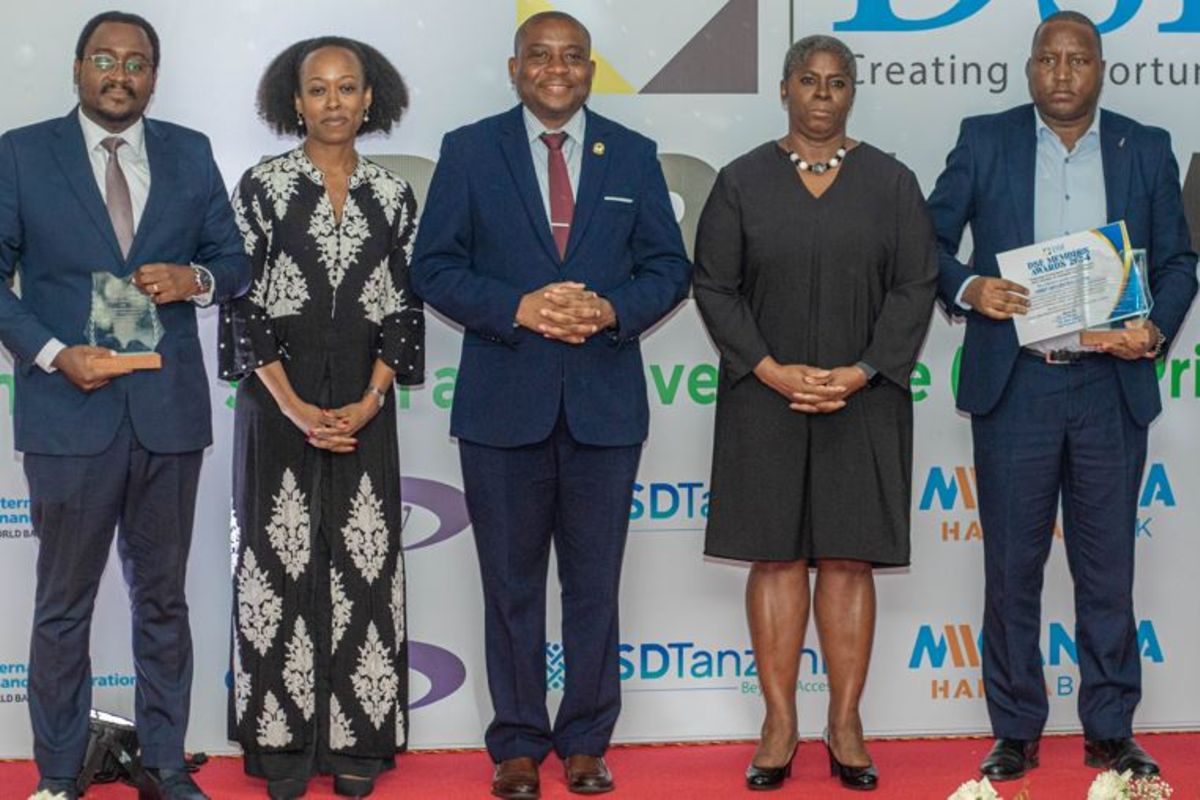
Dar es Salaam. The Dar es Salaam Stock Exchange (DSE) Members Awards made a comeback this year after a four-year hiatus caused by the outbreak of Covid-19 pandemic.
Focused on sustainable investment, the award event was held on Friday November 8, 2024, embracing Environmental, Social and Governance (ESG) principles for sustainable capital markets.
The DSE chief executive officer, Mr Peter Nalitolela, urged organisations to look beyond short-term profits and prioritise sustainable practices that benefit both the environment and society.
“Organisations should understand that we are also here to look towards the world of tomorrow, to protect the environment and to ensure we create a better society,” he said.
Mr Nalitolela further emphasised that the DSE awards aim to encourage meaningful actions across the business ecosystem, stressing the role of ESG principles in driving transformative changes.
“Around the world, and especially here in East Africa, embracing environmental, social, and governance principles is not only shaping investment choices but also driving the fundamental transformation of capital markets towards more sustainable, inclusive and resilient economies,” he added.
“We have been given this world as an heritage and it is our responsibility to leave it better for future generations. When we talk about sustainability, we are not only talking about the environment but also about the community. If you make profits and you do not give back to the community, then your profitability is meaningless,” he said.
On the other hand, International Finance Corporation (IFC) country manager, Ms Martine Valcin, highlighted Tanzania’s leading role in addressing climate change, acknowledging President Samia Suluhu Hassan’s commitment to an inclusive approach.
“Under President Hassan leadership, Tanzania is a leading voice on the importance of public and private response to climate change—a response that includes women, youth and rural populations, boosts food security, promotes clean energy transition, and preserves Tanzania’s considerable natural resources for future generations,” Ms Valcin said.
Financial Sector Deepening Tanzania (FSDT) chief executive officer, Mr Eric Massinda, also echoed the goals, describing FSDT’s work to strengthen the financial system as a pathway to economic empowerment.
“We’re dedicated to improving livelihoods and enhancing the resilience of underserved groups, particularly women, youth, farmers and micro, small and medium enterprises,” he said.
This year’s awards celebrated a wide range of contributions to sustainable capital markets, spanning ten categories.
Highlights included the Best Stock Broker of the Year, Best Upcoming Stock Broker of the Year, Best Custodian Bank of the Year, Best Listed Company in both the Main Investment Market (MIM) and Enterprise Growth Market (EGM) segments, and Best Bond Dealer of the
Year.His experience extends beyond commercial banking, as he also served as Treasury Registrar at the Ministry of Finance.
A recognised authority in banking and finance, Mafuru was sought after as a speaker on industry matters. He was passionate about leveraging his expertise to create value for clients and stakeholders.
Prior to his latest role at the Planning Commission, Mafuru played a pivotal role in shaping Tanzania’s economic policies when he served within the Ministry of Finance as commissioner of the Policy Analysis Division and subsequently as deputy Permanent Secretary for Economic Management Policies.
At the Planning Commission which he headed until his death, Mafuru was pushing ahead to prepare and subsequently oversee the Vision 2050 which Tanzania is now drafting.














